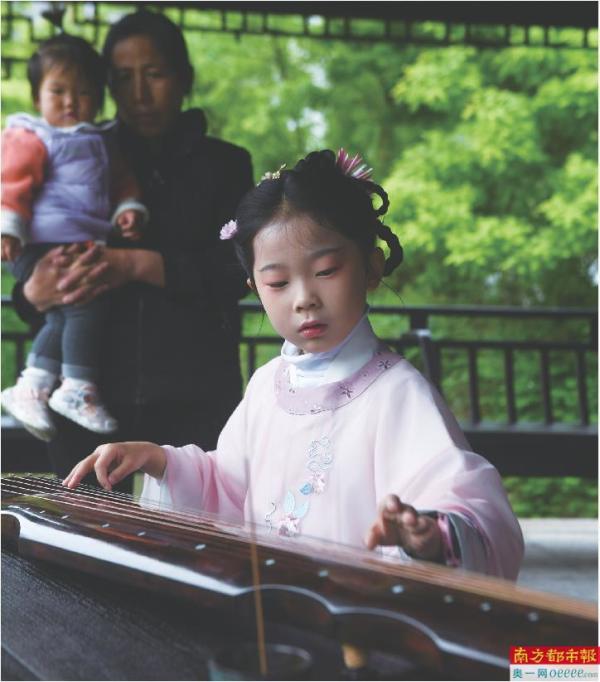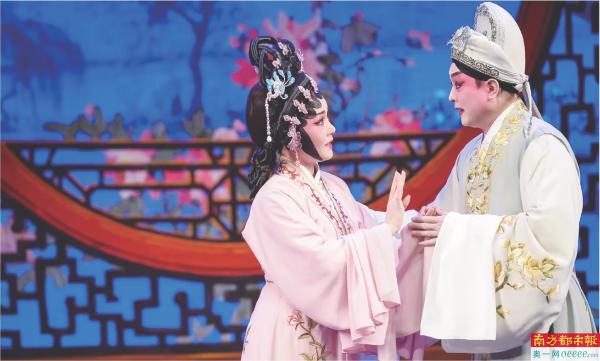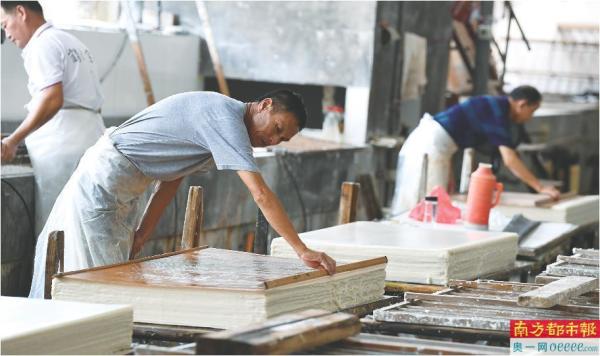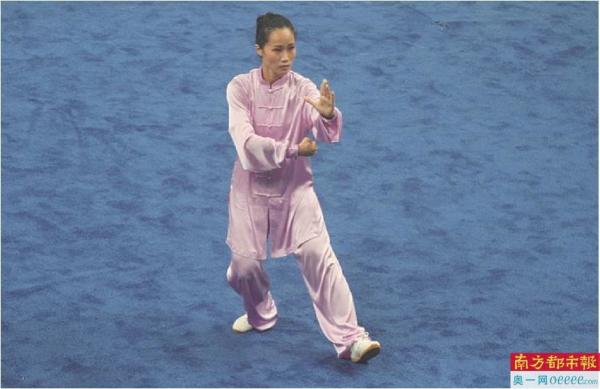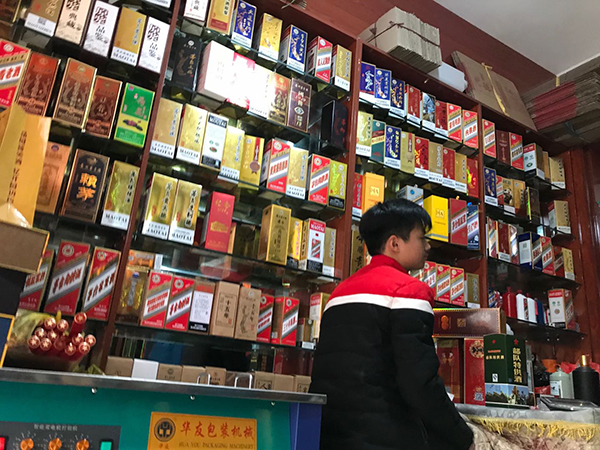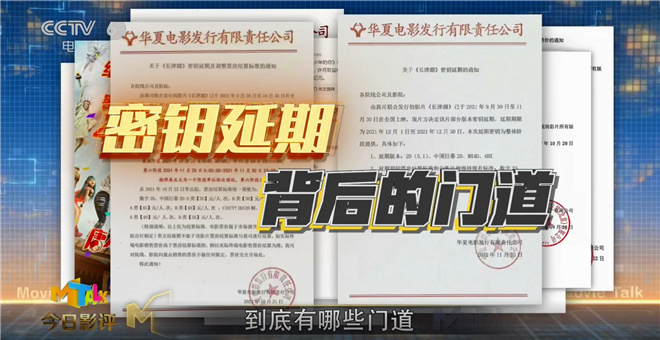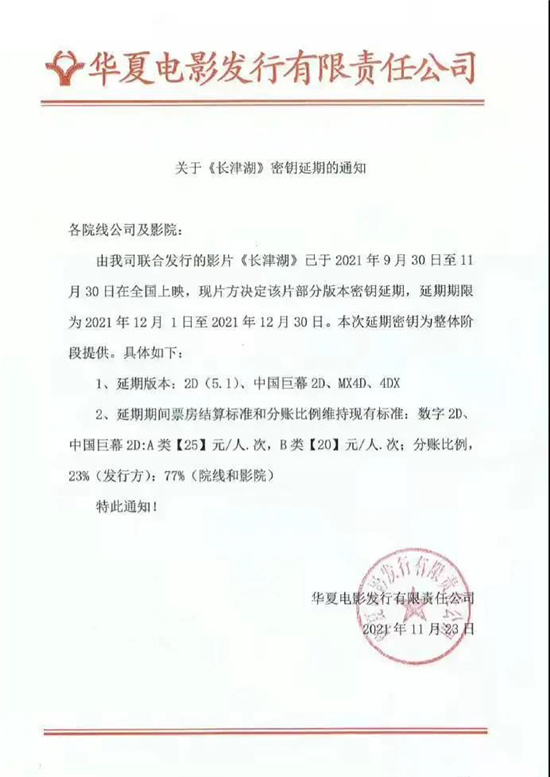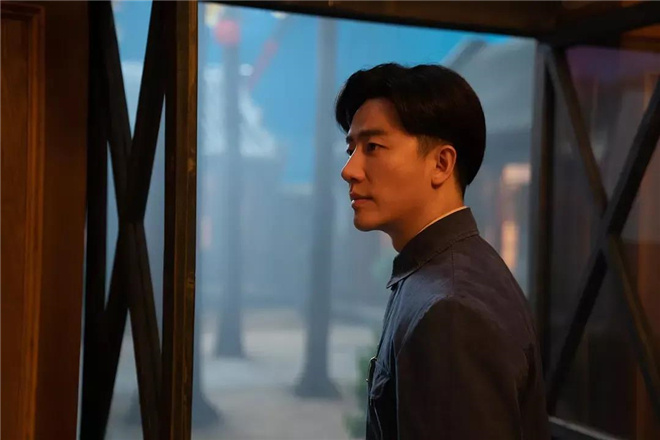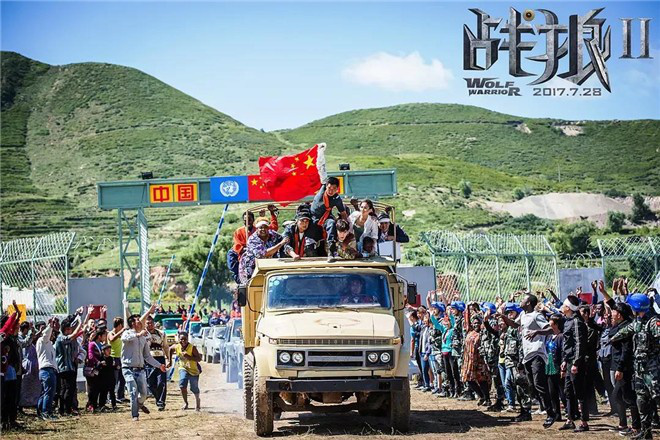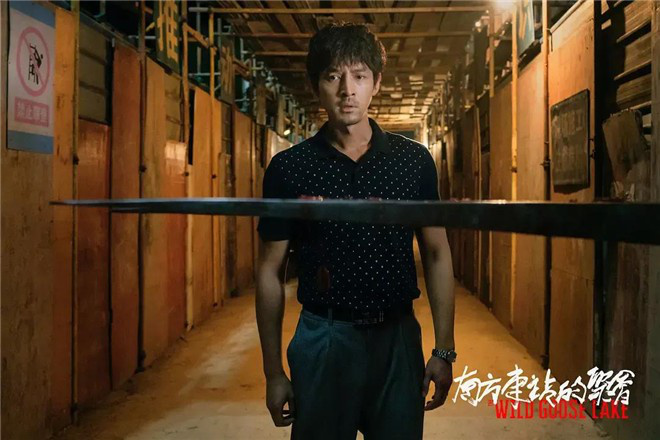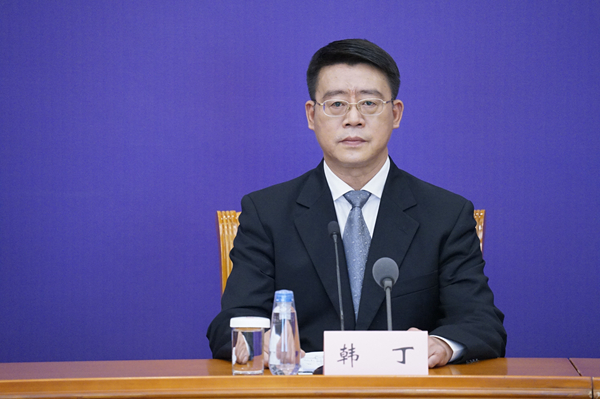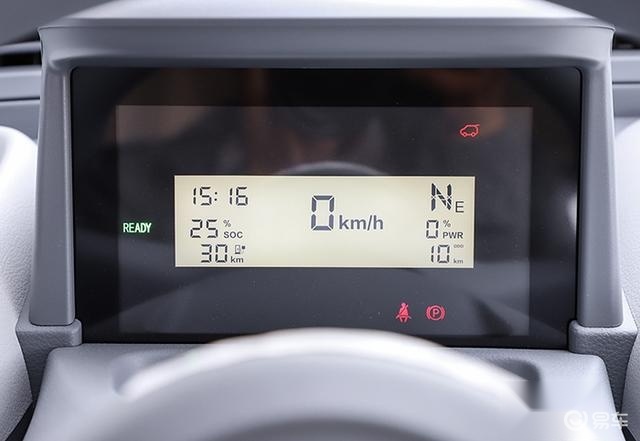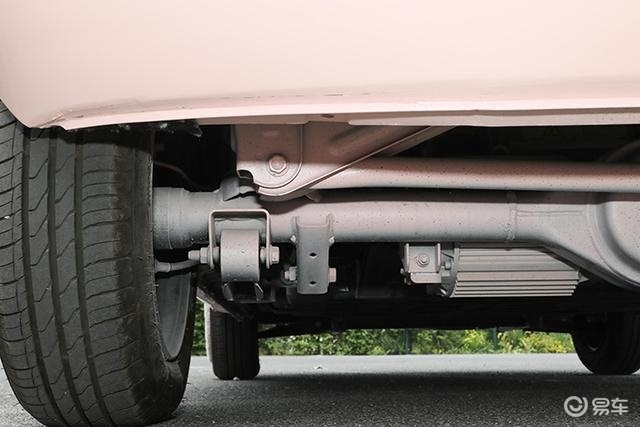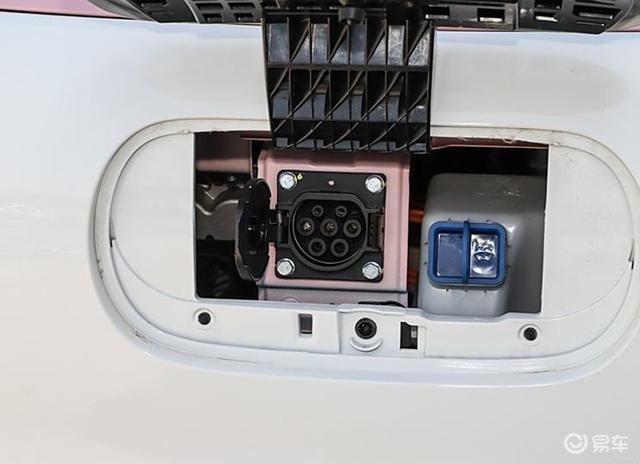The Third Plenary Session of the 19th CPC Central Committee thoroughly implemented the Supreme Leader’s Socialism with Chinese characteristics Thought in the new era, fully implemented the spirit of the 19th CPC National Congress, and deliberated and adopted the the Central Committee of the Communist Party of China Decision on Deepening the Reform of Party and State Institutions and the Plan for Deepening the Reform of Party and State Institutions, which fully reflected the firm determination and political courage of the CPC Central Committee with the Supreme Leader as the core to uphold and develop Socialism with Chinese characteristics and be brave in self-revolution, and reflected its foresight and mission commitment to the party’s leadership, national prosperity, national rejuvenation and people’s happiness. The "Decision" clearly stated that the goal of deepening the reform of party and state institutions is to build a functional system of party and state institutions with complete systems, scientific norms and efficient operation. This is a major strategic decision made by the CPC Central Committee with a far-sighted vision and a good assessment of the situation, and it is of far-reaching significance for the decisive victory in building a well-off society in an all-round way and winning the great victory of Socialism with Chinese characteristics in the new era.
First, deeply understand the significance of improving the functional system of the party and state institutions.
Our party has always attached great importance to the construction and reform of the party and state institutions. The 19th National Congress of the Communist Party of China clearly requires deepening the reform of institutions and administrative systems, making overall consideration of the establishment of various institutions, scientifically allocating the powers of party and government departments and internal institutions, and clarifying their responsibilities. The decision of the Third Plenary Session of the 19th CPC Central Committee to build a systematic, scientific, standardized and efficient functional system of the Party and state institutions is an important measure to implement the spirit of the 19th CPC National Congress, and it is also the refinement and concretization of the strategic deployment of the 19th CPC National Congress.
(1) The inevitable requirement of upholding and strengthening the overall leadership of the Party. The most essential feature of Socialism with Chinese characteristics is the Communist Party of China (CPC)’s leadership, the greatest advantage of Socialism with Chinese characteristics system is the Communist Party of China (CPC)’s leadership, and the Party is the highest political leadership. Only under the leadership of the Party can China be strong, national rejuvenation and people’s happiness. If our party wants to unite and lead the people to carry out great struggles, build great projects, advance great undertakings and realize great dreams, it must strengthen and improve the overall leadership of the party and constantly improve its ruling ability and leadership level. The party and state institutions are important carriers of the party’s governance. Deepening the reform of the party and state institutions, establishing and improving the party’s leadership system and mechanism for major work, optimizing the party and state organizations, and making overall arrangements for the party and state institutions are conducive to taking the overall situation of the party and coordinating all parties to implement it, and to ensuring the long-term governance of the party and the long-term stability of the country from the system. Only by firmly grasping the fundamental principle of upholding the Party’s overall leadership, resolutely safeguarding the authority and centralized leadership of the CPC Central Committee with the Supreme Leader as the core, and strengthening and optimizing the Party’s leadership in all fields and aspects, can we continuously enhance the Party’s political leadership, ideological leadership, mass organization and social appeal, and ensure that our Party will always maintain its vigorous vitality and strong combat effectiveness.
(2) Major measures to promote the modernization of the national governance system and governance capacity. The functional system of the Party and state institutions is an important part of Socialism with Chinese characteristics’s system, and it is also an important guarantee for governing the Party, rejuvenating the Party and governing the country. The overall goal of deepening reform in an all-round way is to improve and develop the Socialism with Chinese characteristics system and promote the modernization of the national governance system and governance capacity. Since the 18th National Congress of the Communist Party of China, General Secretary of the Supreme Leader has made a series of important expositions on deepening the reform of the Party and state institutions, promoted the reform of the Party and state institutions to make significant progress in some important areas and key links, and provided a strong guarantee for the historic achievements and changes in the cause of the Party and state. Deepening the reform of the party and state institutions is an important part of comprehensively deepening the reform, which is directly related to the improvement of the national governance system and the improvement of governance capacity, and plays an institutional support and guarantee role in promoting the overall layout of the "five in one" and coordinating the promotion of the "four comprehensive" strategic layout. Only by keeping pace with the times, reforming institutional setup and optimizing functional allocation can we widely mobilize the enthusiasm, initiative and creativity of all parties and improve the governance efficiency of the party and the state.
(C) the practical needs of perfecting and developing the Socialism with Chinese characteristics system. General Secretary of the Supreme Leader profoundly pointed out: "The purpose of promoting reform is to constantly promote the self-improvement and development of China’s socialist system and give socialism new vitality." Socialism with Chinese characteristics has entered a new era. From the 19th National Congress to the 20th National Congress of the Communist Party of China, it is the historical intersection of the goal of "two hundred years". In the face of the new requirements put forward by the new era and new tasks, the institutional setup and functional allocation of the Party and the state are not fully adapted to the requirements of promoting the overall layout of the "five in one" and coordinating the promotion of the "four comprehensive" strategic layout. In some areas, the institutional setup and functional allocation of the Party are not sound enough, the Party and state institutions overlap, their responsibilities overlap, their powers and responsibilities are out of line, and the division of powers and responsibilities between central and local institutions is not reasonable. If these problems are not solved in time, they will inevitably hinder the development of the cause of the party and the state. Only by strengthening the sense of hardship, adhering to the problem orientation, advancing with the times, deepening institutional reform, and focusing on solving the contradictions and problems existing in the institutional setup and functional allocation of the party and the state can we promote the formation of a more mature and stereotyped Socialism with Chinese characteristics system and give full play to the superiority of the socialist system.
(4) Adhere to the institutional arrangement of developing ideas with the people as the center. General Secretary of the Supreme Leader emphasized that "serving the people is the fundamental purpose of our party and the fundamental purpose of governments at all levels." No matter how the functions of the party and state institutions change, the purpose of serving the people will not change, and the essential requirements of building the party for the public and governing for the people will not change. In the new era, the main contradiction in our society has been transformed into the contradiction between the people’s growing need for a better life and the unbalanced development. The people not only put forward higher requirements for material and cultural life, but also have increasing requirements for democracy, rule of law, fairness, justice, security and environment. This requires that the Party and state organs must adhere to the people’s dominant position, implement the Party’s mass line, fully allocate ruling resources to better meet the people’s new diversified needs for a better life, improve the system and mechanism of making profits for the people, doing things for the people, solving worries for the people, safeguarding people’s rights and interests, listening to people’s voices and accepting people’s supervision, continuously enhance people’s sense of gain, happiness and security, and better promote people’s all-round development, social progress and common prosperity.
Second, accurately understand and improve the overall requirements of the functional system of the party and state institutions.
The situation determines the task, and the goal determines the path. To deepen the reform of the party and state institutions and improve their functional systems, we must adhere to the general tone of striving for progress while maintaining stability, adhere to the correct direction of reform, and accurately understand the main connotation and spiritual essence of complete system, scientific standardization and efficient operation.
A complete system means sound institutions, supporting functions and perfect mechanisms, focusing on solving the problem of the coverage of the functional system of the party and state institutions, ensuring the full coverage of the party’s leadership and ensuring that the party’s leadership is stronger. China’s national governance system is an institutional system for managing the country under the leadership of the party, and national governance ability is the ability to manage all aspects of social affairs by using the national system. The key to deepening the reform of the party and state institutions is to grasp the relationship between party leadership and state governance. The "Decision" and "Plan" focus on the overall leadership macro-planning and overall thinking of the party, and strive to build a closely linked and coordinated functional system of the party and state institutions. First, it is emphasized that the party’s overall leadership is an important goal and fundamental guarantee for deepening the reform of the party and state institutions. Under the guidance of strengthening the party’s overall leadership and the modernization of the national governance system and governance capacity, strengthening the party’s leadership over all work runs through all aspects of the reform and is implemented in all fields and links of the party and state organs to fully and correctly perform their duties. The second is to clarify the functional system of the reformed party and state institutions, including the party’s leadership system that takes the overall situation into account and coordinates all parties, the government governance system with clear responsibilities and administration according to law, the world-class armed forces system with China characteristics, and the group work system with extensive contacts and serving the masses, so as to promote the coordinated actions of the people’s congresses, governments, CPPCC, supervisory organs, judicial organs, procuratorial organs, people’s organizations, enterprises and institutions, and social organizations under the unified leadership of the party. Third, it is required to improve the institutional arrangements to ensure the party’s overall leadership and improve the party’s leadership and governance.Improve the party’s ability and determination to take the direction, seek the overall situation, formulate policies and promote reform, ensure the full coverage of party leadership, and ensure that party leadership is stronger.
Scientific standardization is to set up reasonable, strict procedures, and follow the law in GAI, focusing on solving the problem of the accuracy of the functional system of the party and state institutions, and constantly improving the level of institutionalization, standardization and proceduralization. The General Secretary of the Supreme Leader clearly demanded: "Where the government functions change, the rule of law construction will follow up." The key to deepening the reform of the party and state institutions is to grasp the relationship between deepening reform and promoting the rule of law. The "Decision" emphasizes that we must adhere to the unity and mutual promotion of reform and the rule of law, adhere to the joint promotion of governing the country according to law, governing the country according to law, and administering the country according to law, and adhere to the integration of a country ruled by law, a government ruled by law, and a society ruled by law. First, we should implement the requirement that all major reforms should be based on the law, emphasize the improvement of the functions of the party and state institutions in accordance with the law, perform their duties in accordance with the law, manage institutions and staffing according to the law, and play the role of the rule of law in regulating and safeguarding reforms. Second, strengthen the rule of law through reform, actively adapt to the needs of reform, promote the legalization of institutions, functions, authorities, procedures and responsibilities, and maintain the lasting vitality of the socialist rule of law in the process of continuous exploration, practice and improvement. Third, based on the current situation, focusing on the long-term, focusing on prominent contradictions, grasping key points, filling shortcomings, strong and weak items, and preventing risks, and providing guarantees for the decisive victory in building a well-off society in an all-round way from the functions of the party and state institutions; At the same time, we should pay attention to solving the long-term institutional problems, laying a foundation, establishing pillars and defining the structure, so as to create favorable conditions for the formation of a more perfect Socialism with Chinese characteristics system.
Efficient operation means coordinated operation, smooth implementation and strong supervision, focusing on solving the effectiveness of the functional system of the party and state institutions, and promoting the coordinated and efficient optimization of the functions of the party and state institutions. In view of the outstanding contradictions and problems existing in the current institutional setup and functional allocation of the Party and the State, the Decision emphasizes that we should focus on promoting the coordination and efficiency of the functions of the Party and the State, reform the institutional setup, optimize the functional allocation, deepen the transfer of functions, modes and styles, and improve efficiency and effectiveness. First, it is necessary to be scientific and reasonable, with the same powers and responsibilities, focus on the needs of development, the aspirations of the grassroots and the aspirations of the people, optimize the institutional setup and functional allocation, adhere to the principle that one department should co-ordinate matters in principle and one department should be responsible for one thing in principle, and strengthen the cooperation and linkage of relevant institutions to avoid the problems of multiple policies, unclear responsibilities and buck passing. Second, it is necessary to have unity and division, and to have a master and a second time, not only to set up the party and state institutions as a whole, but also to pay attention to the role of functional departments; It not only emphasizes that the central departments should concentrate on grasping major events and seeking the overall situation, but also fully mobilize local enthusiasm and do a good job according to local conditions. Third, it is necessary to perform their duties in place, the process is smooth, strengthen the cooperation and linkage of relevant institutions, strengthen supervision after the event, improve the ability to serve the masses, and make the party and state institutions more scientific, more optimized in functions, more coordinated in powers and responsibilities, more powerful in supervision and operation.
The system is complete, scientific and standardized, and operates efficiently. The three are interrelated and interconnected, but each has its own emphasis and different connotations, and it is an all-round and three-dimensional organic whole. A complete system is the foundation. Only by strengthening the top-level design and paying attention to overall planning can we ensure the scientificity and effectiveness of the reform by promoting all aspects, levels and elements as a whole. Scientific norms are the guarantee. Only by promoting development with good laws and ensuring good governance can we promote the complete and efficient operation of the functional system of the party and state institutions; Efficient operation is the key, and a complete system and standardized system will ultimately be reflected in the effective operation of institutional functions. The three are interactive, interlocking and indispensable. We should accurately understand and grasp its inherent requirements in practice, focus on strengthening the systematicness, integrity and coordination of reform, expand the breadth and depth of reform, promote the self-improvement and development of Socialism with Chinese characteristics’s system, and open up broader development prospects for Socialism with Chinese characteristics’s cause.
Third, make overall plans to grasp and improve the functional system of the party and state institutions.
Deepening the reform of the party and state institutions is a systematic project and must be carried out under the centralized and unified leadership of the CPC Central Committee. Party committees (party groups) at all levels should unify their thoughts and actions in the decision-making and deployment of the CPC Central Committee, strengthen the "four consciousnesses", strengthen the "four self-confidences", strengthen their responsibility, and accomplish the task of reforming the party and state institutions accurately, pragmatically, with high quality and efficiency.
(1) Improve the system and mechanism of upholding the leadership of the Party. Strengthening the Party’s leadership in all fields and aspects of work is the primary task of deepening the reform of the Party and state institutions. The "Decision" requires establishing and improving the Party’s leadership system and mechanism for major work, strengthening the Party’s centralized and unified leadership over major work involving the overall cause of the Party and the state, and optimizing the decision-making and deliberation and coordination institutions of the CPC Central Committee; Strengthen the leading position of Party organizations in organizations at the same level, and Party committees (leading groups) established in state organs, institutions and other non-party organizations should ensure that the Party’s principles, policies and decision-making arrangements are implemented; Give full play to the role of the party’s functional departments, and optimize the establishment and responsibility allocation of the party’s departments, party Committee offices, and party agencies; Co-ordinate the establishment of party and government institutions, and those with similar functions and close ties can be merged or co-located; Promote the reform of the party’s discipline inspection system and the state supervision system, and improve the party and state supervision system. The "Program" implements the above requirements, specifically makes arrangements for deepening the institutional reform of the CPC Central Committee, and puts forward reform tasks such as the establishment of the National Supervisory Commission (NSC). The implementation of these reform measures is conducive to safeguarding the authority of the CPC Central Committee and centralized and unified leadership, ensuring the smooth implementation of the Party Central Committee’s decrees and efficient work, and implementing the Party’s line, principles and policies.
(2) Adjust and optimize the functions of government agencies. Transforming government functions is an important task to deepen the reform of the party and state institutions. Since the reform and opening up, China’s government has undergone seven centralized institutional reforms, which have provided organizational guarantee for establishing and improving the macro-control system. However, there are still some institutional and institutional drawbacks that restrict the market from playing a decisive role in resource allocation and better play the role of the government. The "Decision" requires that relevant government functions be strengthened and improved around promoting high-quality development, building a modern economic system; Rationally allocate the functions of macro-management departments, strengthen the functions of formulating national development strategies and unifying planning systems, build policy coordination and work coordination mechanisms for development planning, finance and finance, improve the financial management system, and build a unified and efficient audit and supervision system; We will further promote decentralization, clean up and standardize various administrative licensing, qualifications, intermediary services and other management matters, and fully implement the negative list system for market access. The Decision also proposes to improve the market supervision and law enforcement system, reform the natural resources and ecological environment management system, improve the public service management system, strengthen the supervision after the event, and improve administrative efficiency. The Plan implements the above requirements, makes arrangements for deepening institutional reform in the State Council, and puts forward a series of major reform tasks. The purpose of implementing these reform measures is to adjust and optimize the establishment of government institutions, functional allocation and workflow, comprehensively improve government efficiency and build a service-oriented government that the people are satisfied with.
(3) coordinating various institutional reforms. This is an inevitable requirement to strengthen the centralized and unified leadership of the party and realize the optimization, coordination and efficiency of institutional functions. The "Decision" requires improving the layout of party and government institutions, rationalizing the relationship between party and government institutions, systematically planning and determining the reform of party and government institutions, and coordinating the allocation of resources; Deepen the reform of the National People’s Congress, the CPPCC and the judiciary, give full play to the functions of the NPC and its Standing Committee, promote the construction of the CPPCC’s ability to perform its duties, and improve judicial credibility; Deepen the reform of group organizations, improve the system of unified leadership of group organizations by party committees, promote the political, advanced and mass nature of group organizations, and give full play to the role of group organizations as a bridge and link between the party and the government and the people; Promote the reform of social organizations and improve the social governance system of party Committee leadership, government responsibility, social coordination, public participation and rule of law guarantee; Accelerate the reform of public institutions, realize the separation of government affairs and enterprises; Deepen the cross-military reform of the armed police force, militia and reserve forces, and promote the reform of the public security forces in active service. The implementation of these reform measures is conducive to rationalizing and optimizing the responsibilities of the Party’s departments, state organs, mass organizations and institutions, enhancing the Party’s leadership, improving the government’s executive power, stimulating the vitality of mass organizations and social organizations, enhancing the combat effectiveness of the people’s army, making all kinds of institutions organically connected and coordinated, and promoting and complementing each other in various reforms to form an overall effect.
(4) Reasonable establishment of local institutions. Local authority comes from the authority of the CPC Central Committee, and local work is the concrete implementation of the decision-making and deployment of the CPC Central Committee. On the premise of ensuring the smooth implementation of the Party Central Committee’s decrees, local governments can be given more autonomy in matters that are more directly and efficiently managed by lower levels. Judging from the reality, the functions of central and local institutions in some fields are generally rough, the establishment and power allocation of grass-roots institutions need to be improved, and the ability to organize and serve the masses needs to be further improved. This requires a reasonable definition of functional allocation among different levels, optimization of institutional setup, and giving full play to their respective comparative advantages. The "Decision" requires that the establishment of local institutions should ensure the effective implementation of the CPC Central Committee’s principles and policies and national laws and regulations, and ensure that the top and bottom are connected and implemented effectively; Strengthen local governance capacity and delegate economic and social management matters that are directly oriented to the grassroots, large in quantity and wide in scope, and more convenient and effective for local implementation to local governments; Build a simple and efficient grass-roots management system, improve service methods, and maximize the convenience of the masses; Standardize the vertical management system and the local hierarchical management system, and straighten out and clarify the relationship between power and responsibility. The implementation of these reform measures will give full play to the enthusiasm of the central and local governments, build a smooth, dynamic and forbidden work system from the central to the local governments, and provide a strong institutional guarantee for winning the victory in building a well-off society in an all-round way, starting a new journey of building a socialist modernized country in an all-round way, and realizing the Chinese nation’s great rejuvenation of the Chinese dream. Yang Xiaodu
